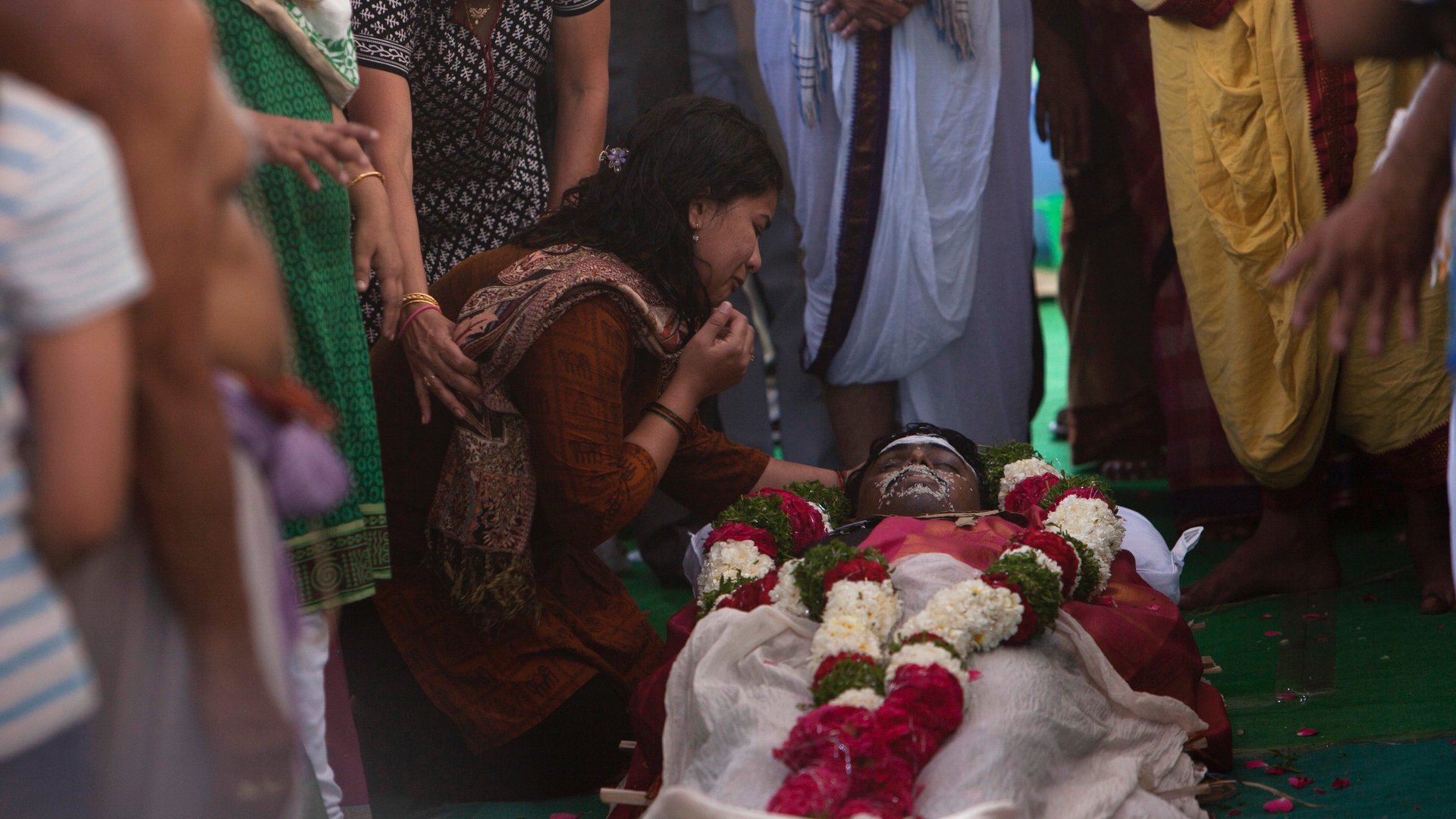Srinivas Kuchibhotla’s wife articulates the devastation of being an immigrant in the US after her husband’s murder
In reflecting upon Srinivas Kuchibhotla’s life, his wife Sunayana Dumala raised poignant questions about the country they called home.


In reflecting upon Srinivas Kuchibhotla’s life, his wife Sunayana Dumala raised poignant questions about the country they called home.
Kuchibhotla, who was shot dead on Feb. 22 by a local man yelling “get out of my country” at a bar in Olathe county in Kansas, would’ve turned 33 next week. In a Facebook post colored with details of their life together, Dumala describes Kuchibhotla as a simple man who would watch TV shows—his favorites were Person of Interest and Indian Idol—and cherish home-cooked meals. “If anyone gave him a heartful meal, he would bless that person by saying, ‘Anna datha sukkhi bhava‘ (a saying in Telugu that translates to, ‘You made my heart happy with the food, so may God bless you’),” she shared.
Dumala called her late husband the “epitome of optimism.” Whenever there was any senseless killing, he would assure her that “if we think good, be good, then good will happen to us and that we will be safe.”
Like most foreign workers, Kuchibhotla spent time worrying about immigration laws in the US. “There were days when he used to talk about how it’s been quite a few years since we applied for our permanent residency card, and he didn’t know how much longer we have to wait for it,” Dumala wrote. “He used to say having one would give him the chance to explore even more of his passion for the aviation industry.” Before his death, Kuchibhotla was an employee with GPS-maker Garmin’s aviation department.
Dumala revealed that before moving to Kansas, she and Kuchibhotla lived in Iowa, where he was content at his job with Rockwell Collins. The couple made the move to a bigger city so she could kickstart her career. He was elated when the Obama administration passed a rule allowing H-4 visa holders, spouses of H-1B workers, to apply for work permits starting early 2015—”not just for me, but for every woman and for those who deserve a career and a chance to fulfill their dreams,” Dumala wrote in the post. She recounted him telling her, “Nani (her nickname), now you can work. It is not that we need the money, but it’s so that you can follow your own dreams and make your parents proud.” (The provision faces the threat of being reversed under US president Donald Trump.)
Hateful rhetoric has escalated since Trump took centerstage in American politics. Anti-muslim hate crimes have risen, as have anti-Semitic attacks. By raising her voice, Dumala hopes that the Indian techie can serve as a lasting symbol of the impact of hate crimes on immigrants in America.
“Many times, these issues are talked about for a few weeks and people tend to forget about them afterward, but the fight must go on towards eradicating hatred from the minds of people,” Dumala says. In rounding off her outpouring of emotion, she poses a question that plagues every immigrant: Is this the same country we dreamed of, and is it still secure to raise our families and children here?